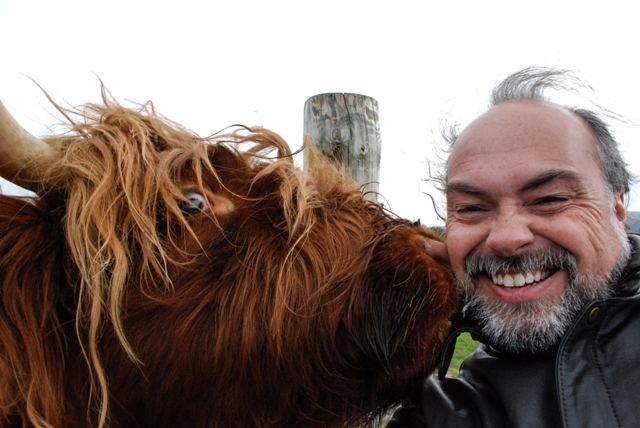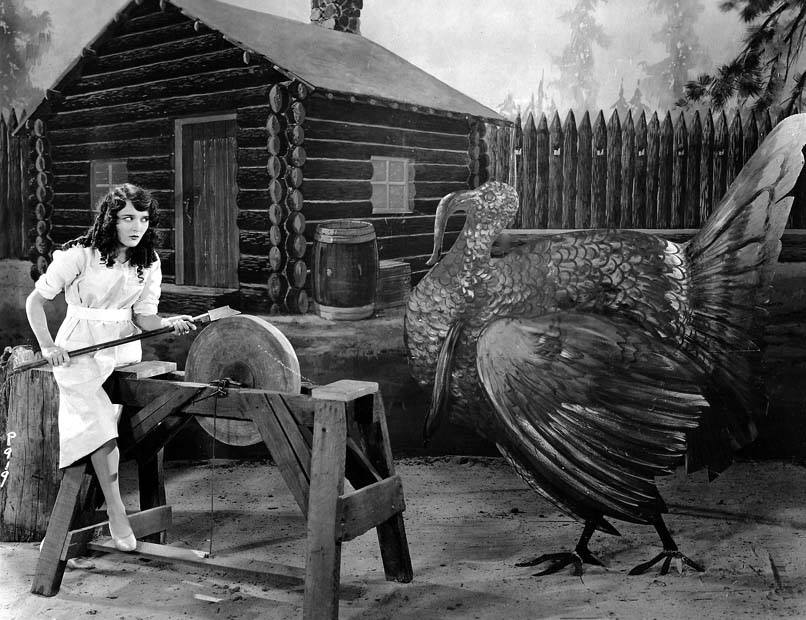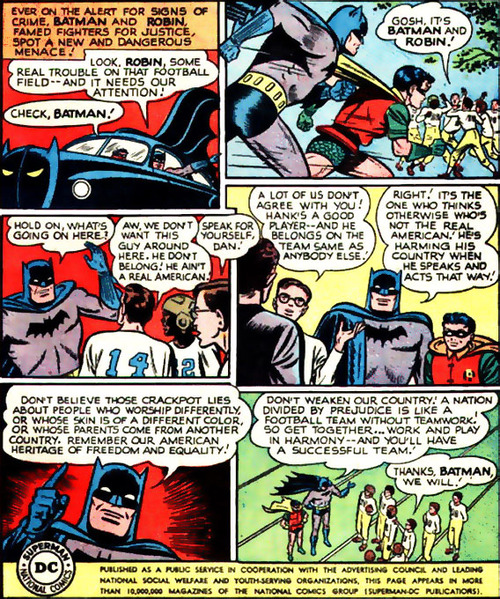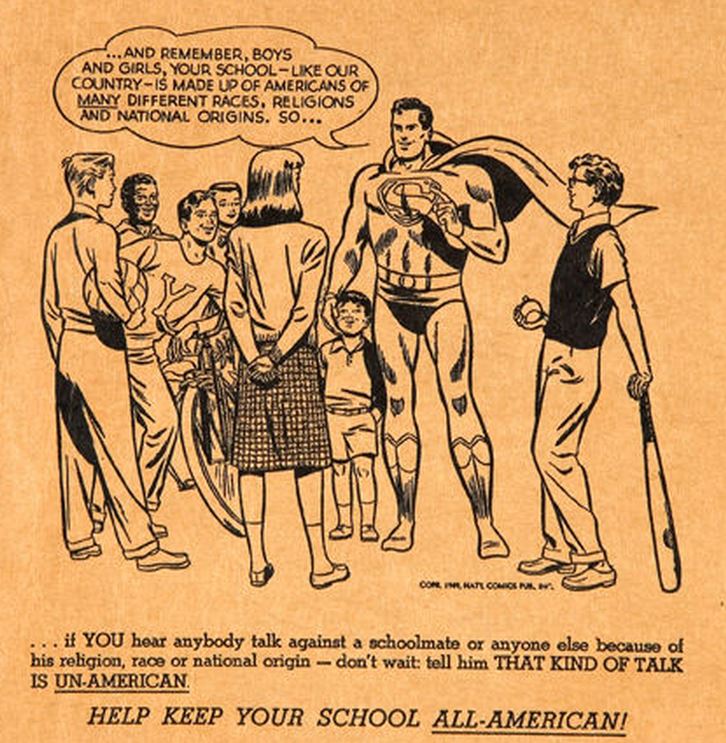I did say I wanted to have an adventure, didn’t I?
Things went south the moment Anne and I arrived in Newcastle and our luggage… did not. Our trans-Atlantic flight had been late arriving in Amsterdam, where our connection was already tight, resulting in one of those “mad dash across the terminal” scenes that look so exciting in movies but are a total drag in real life. You can guess what happened next: Anne and I made it to the plane; our bags remained behind and probably had a grand old time checking out the red-light district and a couple of those, ahem, “coffee shops” you hear about.
Our itinerary was such that we didn’t have the luxury of hanging out in our arrival city until our bags turned up, so, bagless, without toothbrushes and wearing the same stinking clothes we’d had on for about 24 hours at that point, we picked up our rental car and set off for our next destination. Whereupon we learned that driving in the UK was going to be a much bigger challenge than either of us expected.
It wasn’t the driving-on-the-left thing, like everyone assumes. You actually get used to that pretty quickly. No, the problem was that the roads there are so bloody small. Seriously, a two-lane road with traffic running in both directions, supposedly a “major” roadway, is only about as wide as one-and-a-third of the spacious traffic lanes we enjoy here in the wide-open western US. And there’s no shoulder or breakdown lane over there, either, only occasional wide spots called “lay-bys” where you can pull over if you need to.
And if that wasn’t challenging enough, the roads are bounded in most places by a short curb, unless you’re really far out in the countryside, and it was that curb that gave us the most stress. I was so conscious of keeping to the left, away from the oncoming traffic that seemed to be only inches away from my face, that I kept brushing against the stupid curb. And so it was that late in the afternoon of our first day, as the sky was growing purple with twilight and the only thing we wanted was to reach our B&B and sleep for the next 15 hours or so, I hit one of those stupid curbs while moving about 60 mph and blew a tire.
This meant we were obliged to spend a good part of the next day discovering what an English tire shop is like. (“English” rather than “Scottish” because we hadn’t actually crossed into Scotland yet.) FYI, they’re just like American ones: the smell of new rubber in the air, a waiting area with vinyl couches and free coffee, a flat-screen TV tuned to some kind of sporting event… hell, the manager’s name was even “Dave,” just like every Big-O I’ve ever set foot in here at home. But even after getting the tire — excuse me, tyre — replaced, we were still dead in the water, waiting around in a small Northumberland town for a missing suitcase to catch up to us. And then, just to put a cherry on top of this sundae, Anne came down with a case of traveler’s tummy (i.e., she got sick).
This was definitely not the way I’d hoped to introduce her to the wonders of world travel. In fact, for the first several days we were over there, I think if she could have stepped through a Stargate and been magically, instantly home but only at the price of never leaving again, she would have done it. Things got better, though, once we started up into the Highlands.
The Scottish Highlands have occupied our imaginations for years, thanks to the movies Highlander and Rob Roy, and Diana Gabaldon’s novel Outlander, and I’m very happy to report that neither of us were disappointed by them. The landscape northwest of Glasgow is quite simply majestic: rolling hills and rocky crags, all painted in soft greens and yellows with an overlay of purple heather, dotted with quaint towns and picturesque ruins, and with thick forests and lochs and rivers and waterfalls around every turn. Curiously, parts of the Highlands reminded me of home, of the high valleys in the mountains above Salt Lake City, which, perhaps not coincidentally, were often settled by Scots and feature borrowed Scottish names. (We have our own version of Ben Lomond in Utah, for example.) The rugged beauty and relatively sparse population of the Highlands seemed to draw a lot of the anxiety and stress out of us, like some kind of psychic poultice; I even started to become more comfortable behind the wheel. A little, anyhow.
In the 15 days Anne and I spent in the UK. I drove a little over 1,100 miles, from Newcastle in the north of England to Glasgow, then northwest to the Isle of Skye, then east and north to Inverness and finally back south to Stirling, Falkirk, and Edinburgh. We slept in seven different locations ranging from major cities to somewhere in the boondocks, staying in everything from a working farm’s outbuilding to a Victorian-era home to a former school that’d been converted into a hotel to a honest-to-god castle.
Problems with the luggage and the car aside, Anne and I had some wonderful experiences together. We stood on the shores of Loch Shiel at a place called Glenfinnan, not far from the spot where Bonnie Prince Charlie began his ill-fated revolution against the English in 1745, and there we watched a red-deer stag wade out into the water for a drink. (This was also the place where the immortal Connor MacLeod claimed to have been born in the movie Highlander, in the year 1518.) A few days later, wrapped in a grey drizzle of rain, we walked the battlefield at Culloden Moor, where the English crushed the Highlanders in April 1746 and sent Charlie running for his life. We toured castles and cathedrals and museums and recreated homes of the centuries past. We touched standing stones that had been placed a thousand years before the Romans stepped onto British soil. And we had our hearts broken by the golden light of the setting sun washing over the sandstone buildings of Old Town Edinburgh on our final night in Scotland.
On my own, I climbed a mountain to watch a vintage steam train chuff its way across the arched trestle made famous in the Harry Potter movies. I walked along Hadrian’s Wall to Sycamore Gap, where Kevin Costner first bested Guy of Gisborne in Robin Hood: Prince of Thieves. In Stirling, I wandered through a medieval graveyard after dark, with my only tether to the present being the sound of a Backstreet Boys song echoing down a cobbled alleyway. At Loch Ness, I gazed out across the dark waters and spotted a long, tubular shape among the whitecaps; it turned out to be a line of fishing-net floats, but for just a second, I believed. In Inverness, I rented a kilt for a half-hour just to see what it was like. (Quite comfortable, actually, and I looked great!)
Yes, I did try haggis. I had it for breakfast, served in a big crumbled heap with a couple fried eggs on top. It reminded me somewhat of corned beef hash, and I quite liked it. Black pudding, on the other hand… well, it wasn’t repulsive, and I finished the portion I was served, but I don’t think it’s anything I need to ever order again.
However, the best thing we experienced over there, as corny as it sounds, was the people. The Scots are wonderful, possibly the most wonderful people I’ve ever encountered in my travels. Not that I expected them to be dicks, of course, but I was surprised to cross paths with so many genuinely kind people, starting with Dave, the tyre-shop manager, who offered to drive us to a grocery store that was all of a two-minute walk away so we could get some lunch while he fixed our car.
There there was the hotel desk clerk in Glasgow, whom I asked to tell the maids not to bother Anne while she was feeling under the weather, and who then inquired about her every time I walked past on my way in and out of the place.
Craig, the owner of the B&B where we stayed on Skye, told us in all seriousness that he didn’t want to be there when we left, because he gets attached to his guests and hates to tell them goodbye.
On a street corner in Edinburgh, a scruffy man in a Hawkwind t-shirt — Hawkwind, of all things! — asked Anne if he could help her figure out which bus she needed. Here in the U.S., my reaction would’ve been a defensive “Mind your own business, pal!”, but there was nothing skeevy or threatening about this guy at all. He just saw someone studying a schedule and wanted to help.
Just below Edinburgh Castle, there was a street performer dressed as William Wallace, blue facepaint and braids and all, who became my new best friend when it somehow came out that I liked the band KISS. Suddenly, playing a 13th century warrior was out the window and he just wanted to talk music.
And there was the waitress in a pub called Greyfriars Bobby, where we dined two nights in a row. On our way out on the second night, she asked when they’d be seeing us again, and when we told her it was our last night in Scotland so we wouldn’t be back, she seemed positively crestfallen. Then she stunned us both by throwing her arms around me for a big hug, and then doing the same to Anne along with a kiss on the cheek, after which she wished us a safe journey home and said she hoped that if we ever make it back, we’ll stop in again. We promised her we would… and we meant it. Because I think we will go back someday. Granted, we haven’t even been home a full two months yet, but I think we both feel a tug on our hearts nearly every day…
To wrap up this very long entry — finally! — I’ll leave you with my favorite photo from the trip, a complete accident that happened when I was trying to take a selfie with a Highland “coo” and got more than I bargained for: a cow tongue up the side of my head immediately after I clicked the shutter!







